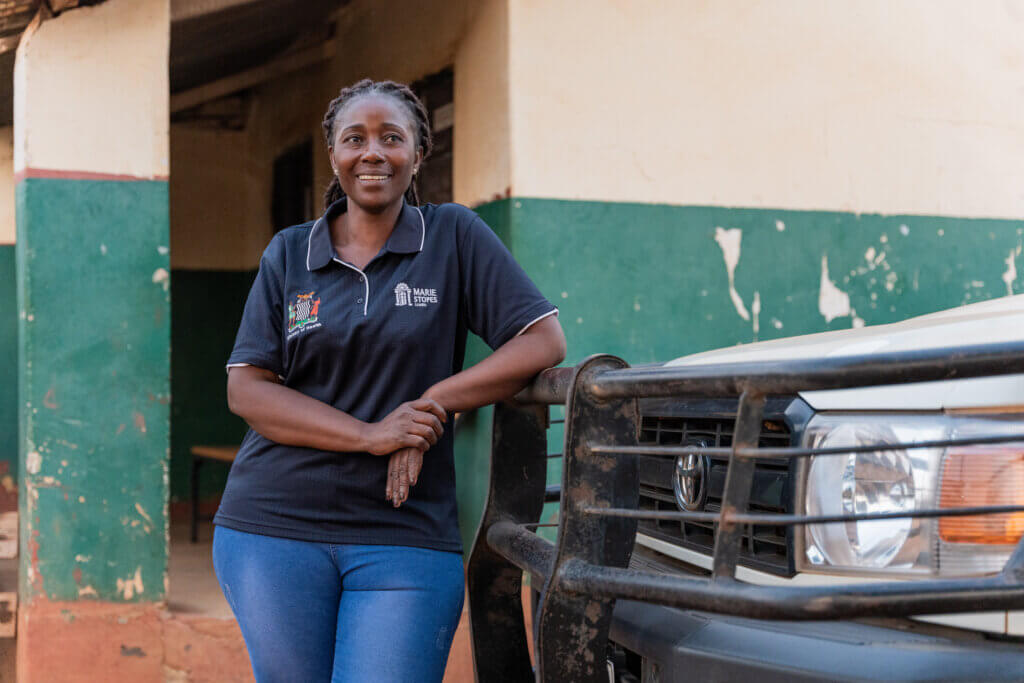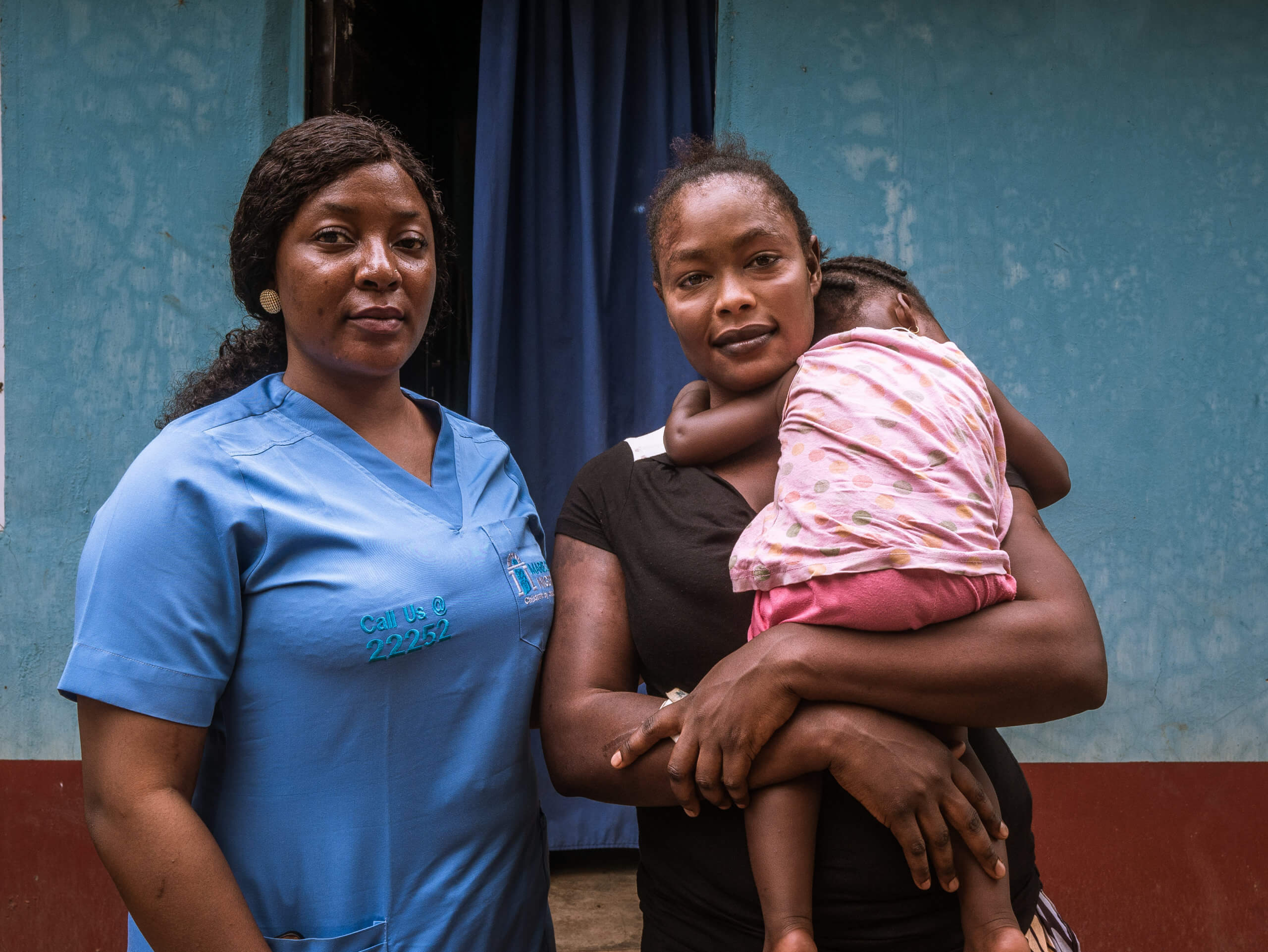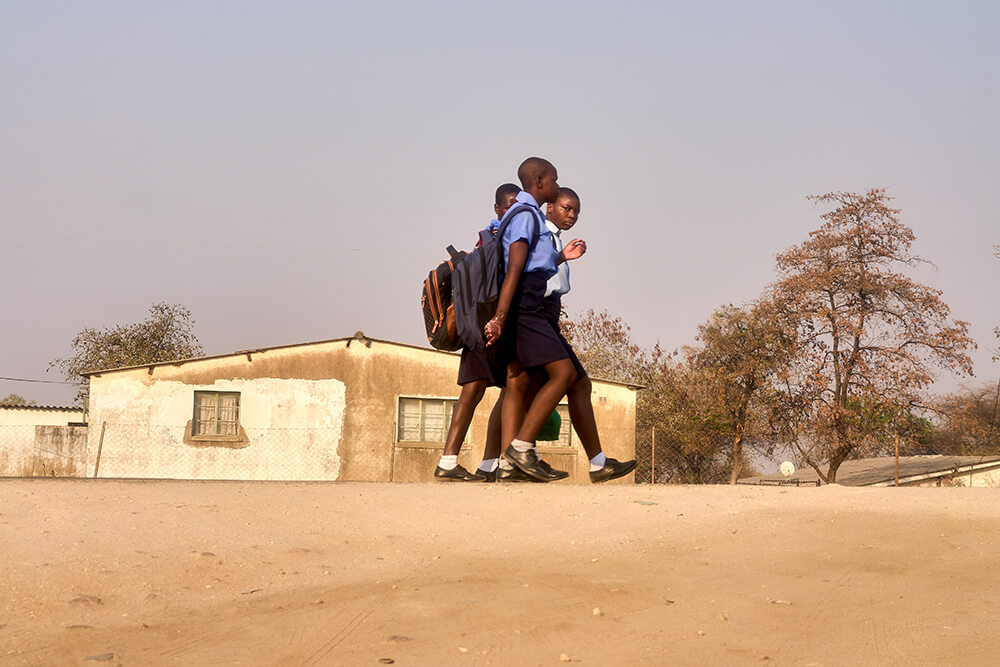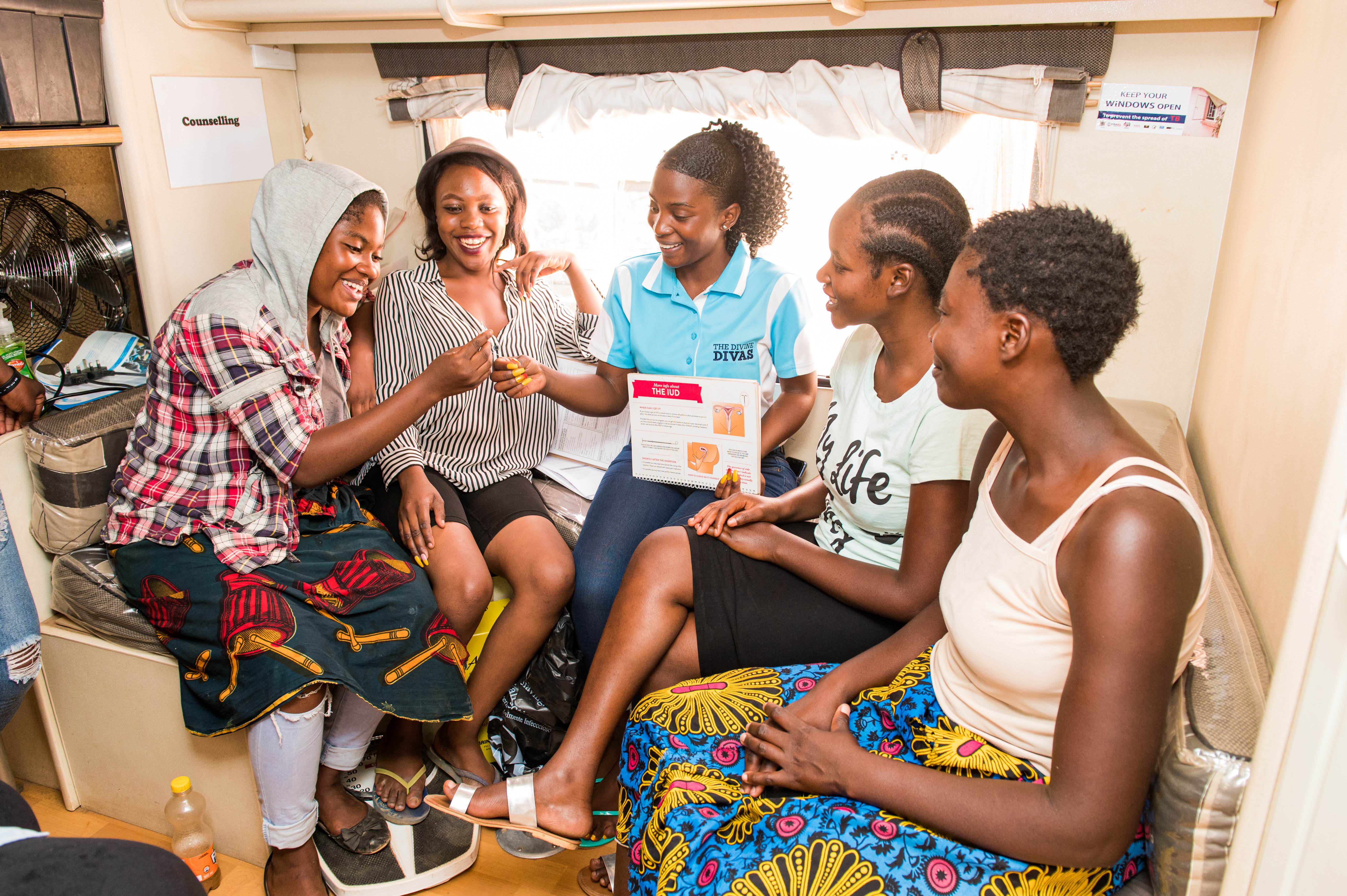Traveling to the most remote communities
MSI is made up of almost 9,000 dedicated professionals fighting for and delivering reproductive choice around the world. We partner with thousands more individuals and organizations to make choice possible for women and girls. In our 2023 Annual Review, you’ll hear from our healthcare providers, clients and partners about why and how they choose choice.
By Inonge Wina-Chinyama
Inonge is the Operations Director for MSI Zambia. She oversees the outreach program, where teams travel far distances into communities to provide care. She shares their fresh approach to reaching people with life-changing reproductive choice.
My beautiful home of Zambia is a vast landscape with rugged rural regions, where many live without the things you and I take for granted—like contraception. Women who want contraception often cannot access it.
Our outreach teams travel into Zambia’s most rural and remote communities with the highest unmet need for contraception. We use different sources of data and information to map out areas of poverty to help us know where to go to reach those who need us most. And when our teams arrive, we offer people a range of contraceptive methods and a different future path—one that they choose.
MEETING 25% OF AFRICA’S CONTRACEPTIVE DEMAND
Across the 17 African countries where our programs are based, 25% of the demand for contraception is met by MSI. Our 300+ mobile outreach teams and 750 MSI Ladies (local nurses) travel to where the need is greatest.
6 OUT OF 10
That’s how many of our clients knew of no other way to access family planning services but MSI (or MSI-supported public clinics). Many are in communities left behind by health systems, and they rely on MSI teams for reproductive choice.
Download the full 2023 Annual Review
When I travel with our outreach teams, it’s not uncommon to find 100 women from a community queuing for contraception in the morning. Some tell me how they walked tens of kilometers to get there; some passed through game parks, risking their lives against lions and elephants.
These women can sometimes be desperate to use contraception, saying they can’t afford to look after the children they already have. In these moments, this is no longer ‘a job.’ We are here to save their lives in every sense.
When your work is this important, you constantly want to do more. Previously, each outreach team could only reach 20 community sites every month. We kept asking ourselves the million-dollar question: how can we reach more people in the most efficient way possible?

So we tried a new approach: we split our teams in half! Each team now partners with four healthcare providers from the Ministry of Health. This means we can divide them into two sub-teams, and they can be in two places at once. While one sub-team serves the furthest communities more than 100 km from ‘base camp,’ the other is delivering services in more urban places.
Working with the public sector in this way is innovation and partnership at its finest. Public healthcare providers are integrated into our teams and mentored by MSI to build their skills in delivering quality reproductive choices—short-term, long-term, and permanent methods. This doesn’t end here. When they return to their public health facilities, they bring these skills back to teach others. In return, they bring insights from the public health system and enable us to tap into their community networks, so we can mutually grow and reach more people. The impact we can have on women’s lives is exponentially greater.
Download the full 2023 Annual Review
The number of people each team can serve every month is now 4,700 (a 420% growth from the old model). I know that other MSI country programs are using this split-teams model now, too. At MSI, we make our approaches and insights known, we share learnings between MSI country programs and with the entire sector, and we’re proud to shout about the impact of choice. So in 2023, I was glad to speak on different platforms about our innovative split-teams outreach model, and was humbled for our approach to be featured on the global health news site Devex.
One in three of the people MSI supports with reproductive healthcare through our last-mile services is living in poverty, so giving them the choice to space pregnancies or avoid getting pregnant can be truly transformative. One by one, we’re breaking cycles of poverty and opening opportunities for women’s and girls’ futures, giving them a chance to change the course and quality of their lives. I’m so glad to be part of it.






